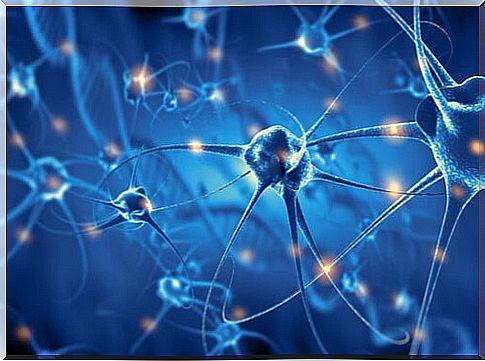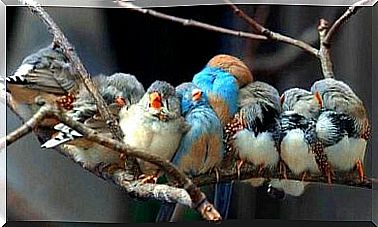I Have It On The Tip Of My Tongue!

How frustrating it is! We know that we know it, that it is there, somewhere in our memory, but … why can’t we access the name of that person, or of that place that we know well, but that escapes us whimsically when we want to evoke it? It is the phenomenon of having it on the tip of the tongue.
The name of this common and curious event perfectly expresses that feeling of being so close to evoking a certain word, that it seems to have fun at our expense, escaping from our reach. Do you want to know how and why it happens?
Having it on the tip of the tongue: A peculiar phenomenon

The phenomenon of having a word on the tip of the tongue (or PDL, as it is known in the scientific milieu) has been studied in the laboratory. The researchers maintain that, during this state of intense sensation of knowing the word, which is not accessed, we remember certain information about the search term.
In many cases, details such as the number of syllables, the initial and final letter, and the location of the main accent are even remembered. In addition, we try to search for synonyms or alternative words as a strategy to find the missing word, apparently.
All this shows that the process of recovering words is not “all or nothing”. In contrast, the phonological and semantic representations of words are independent and mutually supportive.
Another peculiarity of the PDL phenomenon is that it occurs to a greater extent with proper names. To a lesser extent it occurs with common nouns and, very rarely, with verbs and adjectives. Researchers maintain that this phenomenon is common and frequent, increasing its incidence with age.
However, its incidence can increase regardless of age, due to environmental factors. For example, during school or college exam periods.
It is not in the language, but in the neural networks

The brain, that powerful center where all information is processed, elaborated, transformed and stored, is made up of millions of neurons. Now, what determines how efficiently it works are the neural connections.
Thus, the stronger these connections, the better our ability to remember and retrieve information. Also, to make inferences and draw conclusions based on stored data and environmental stimuli.
These networks are strengthened through our use of them. In this way, the most frequently used words are more strongly connected with a greater number of networks. Since, for example, we have a greater amount of physical and sensory information about it.
The practical conclusion is that the more we use words, the greater the probability of recovering them and avoiding the phenomenon of having them on the tip of the tongue.
The key to avoiding that frustrating feeling of having a word on the tip of your tongue is to strengthen your neural networks. How? keeping the mind active, learning continuously, interacting socially and setting ourselves intellectual challenges.
Therefore, if we do it like this, the nets will function analogously to an elastic mesh in which the words will project out of our lips with fluidity. But if we don’t exercise our brain, these nets will be more like fishing nets, where words will be trapped on the tip of the tongue …









